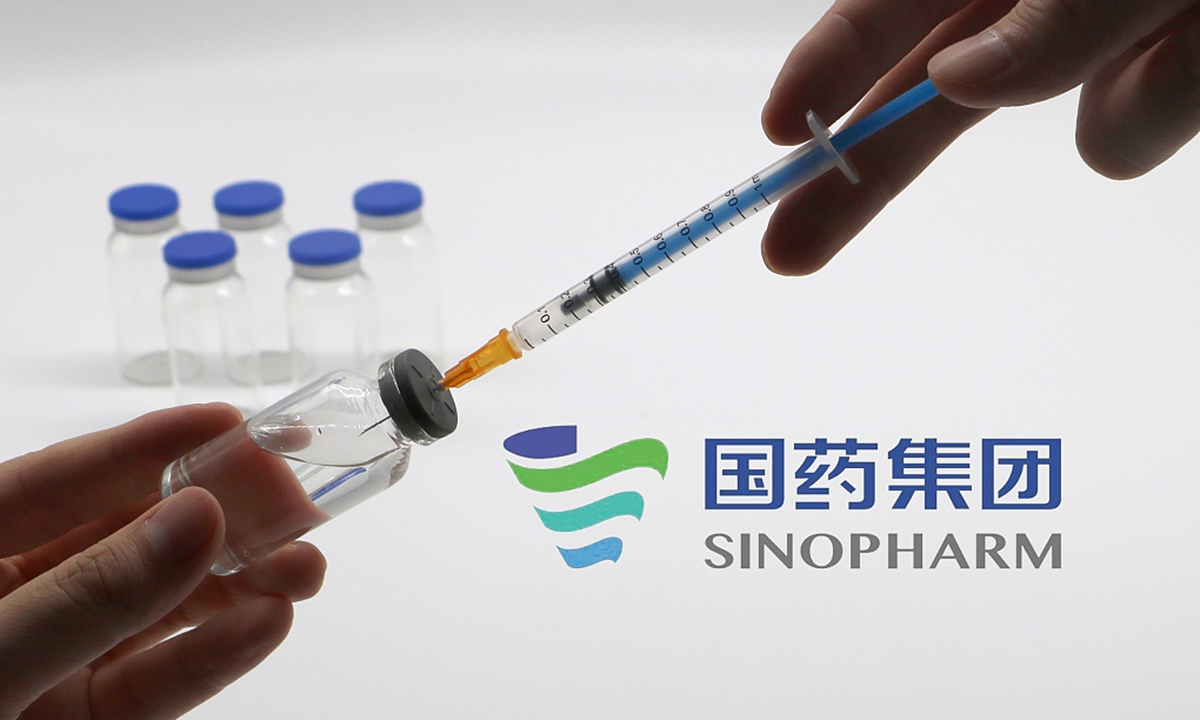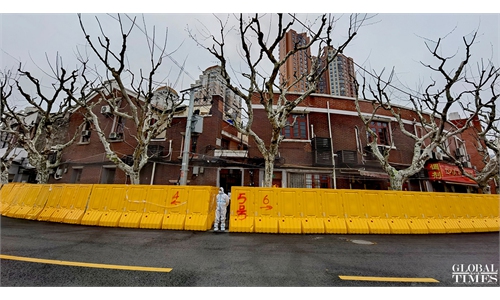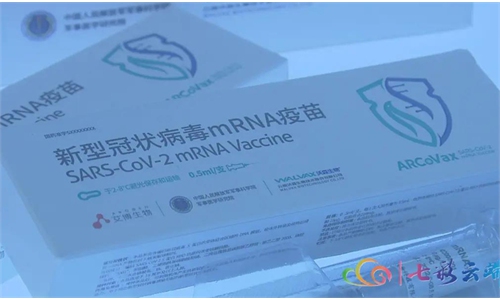Exclusive: Booster shots still effective in preventing deaths from Omicron: Sinopharm scientist
Sinopharm’s Omicron-specific shots expected to enter clinical trials soon: Group scientist

Sinopharm Photo: VCG
The chief scientist of Sinopharm's subsidiary China National Biotec Group (CNBG) urged the elderly and those with chronic diseases to accept booster shots, as the move has proven effective in protecting them from severe cases and deaths in the face of Omicron. He also revealed that the company's two Omicron-specific candidate vaccines are expected to enter clinical trials in the near future.
The Omicron variant has shown more mutations from the original variant than Beta and Delta variants. It weakened the protection efficacy of existing vaccines by 70-80 percent while the other two variants only weakened the protection efficacy of existing vaccines by 20-30 percent, Zhang Yuntao, vice president and chief scientist of CNBG, told the Global Times in an exclusive interview.
Even mRNA vaccines, which proved to trigger much higher levels of antibodies than inactivated vaccines, witnessed sharp drop-offs in antibodies within six months following administration, in the face of Omicron, Zhang said.
In comparison, inactivated vaccines still have a certain level of protection efficacy as they have broader antigens that cover more mutations in the Omicron variant, Zhang noted.
Despite the decline in efficacy, existing vaccines can still trigger humoral immunity and cell-mediated immunity after being administered as booster shots, Zhang noted.
During recent Omicron outbreaks in China, cases of severe disease largely decreased after booster shots were administered, while the rate of severe cases was apparently higher among unvaccinated people, he explained.
Zhang urged people aged 60 and above, and those with chronic diseases, to accept booster shots as soon as possible.
Recent statistic shows that more than 212 million out of the country's 267 million seniors aged over 60 years old are fully vaccinated with at least two doses. A total of 86.6 percent of seniors aged between 60 and 69 have been fully vaccinated, yet only 50.7 percent of those aged 80 and above were fully vaccinated.
The data collected by CNBG from all over the world showed that a booster shot could enhance the level of antibodies significantly, showing a good effect in preventing severe cases and deaths, according to Zhang.
Figures from China's Hong Kong Special Administrative Region tell a similar story.
According to information the Hong Kong SAR government revealed in early March, during the fifth wave of the epidemic in the city, more than 90 percent of the deaths were people aged 60 and above, and 68.7 percent were aged 80 and above.
Among those who died, more than 91 percent had not finished full vaccination procedures. The death rate of people who accepted no vaccination was 31 times that of people who had accepted two shots.
Zhang noted that the Omicron variant has made it more pressing for global vaccine manufacturers to develop new vaccine candidates.
He said that CNBG began research and development on Omicron-specific vaccines near the end of 2021, and it was rolling out submissions to the National Medical Products Administration for approval.
Among CNBG's Omicron-specific candidates, two are inactivated vaccines that would enter clinical trials in the near future. Two others are an mRNA vaccine and a recombinant vectored vaccine, according to Zhang.
After getting official approval, we hope the four Omicron-specific candidates could be provided to those who have received two or three shots to help deal with the epidemic at that time, Zhang said.
In the long run, Zhang believed that besides keeping developing candidates specifically for certain variants, vaccine manufacturers should also consider developing broad-spectrum vaccines that could be protective against various variants like Beta, Delta and Omicron.
The US Food and Drug Administration recebtly authorized Pfizer and Moderna fourth doses for everyone age 50 and older, as well as a fifth dose for certain younger people with compromised immune systems. People age 12 and older with weakened immune systems are eligible for a Pfizer fifth dose, and those 18 and older with the same condition are eligible for Moderna.
Zhang said that CNBG is also conducting research on a forth shot, but current data showed that titer of antibody triggered by a forth shot would not be higher than that following a third shot.
As to the situation in China, he said it still requires further discussion over whether a forth shot is necessary.
If a forth shot has to be administered, Zhang suggests administer it more than six months following the third shot or it would not trigger more memory cells that the third shot did.


